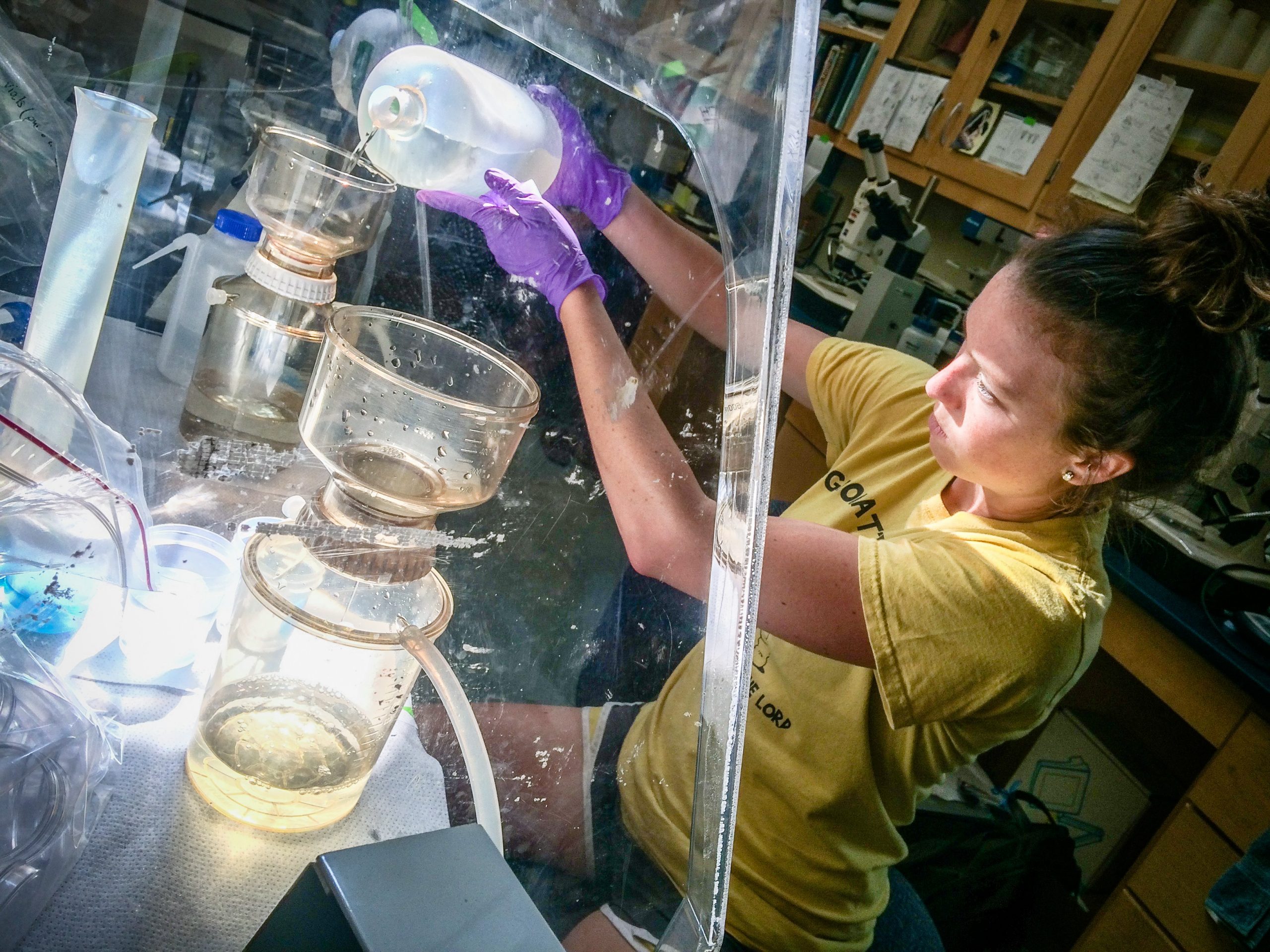
Graduate Program
Thank you for your interest in our graduate program in Marine Sciences at the University of Connecticut. Our M.S. and Ph.D. degree programs in Oceanography offer a unique opportunity to apply an interdisciplinary approach to the physics, chemistry, geology, and biology of marine systems on regional and global scales. Our department includes 22 faculty supervising 43 graduate students (28 Ph.D. and 15 M.S.). The department is dedicated to the success of its graduate students; enrolled students are provided financial support through research or teaching assistantships, both of which include a tuition waiver and option of medical benefits.
Degrees Offered
The Department of Marine Sciences offers graduate studies in the field of oceanography, leading to the degrees of Doctor of Philosophy and Masters of Science:
- Doctor of Philosophy: requires 30 course credits plus 15 credits of GRAD 6950 in addition to 6 related area credits. Doctoral students who have already earned a Master’s in the field of study or closely related field must earn 15 credits beyond the Master’s plus 15 credits of GRAD 6950 in addition to 6 related area credits.
- Masters Plan A: requires 21 credits of advanced course work, 9 GRAD 5950 credits, and completion of a research project, the results of which are reported in a thesis.
- Masters Plan B: requires 30 credits of advanced course work and a final examination. No research project is required.
- 4+1 B.S./M.S. Program in Marine Sciences and Oceanography
Since the program is research-oriented, most Masters students are in the Plan A program. Entry into the Ph.D. program usually requires a Masters degree, but particularly well-prepared students may enter directly from a Bachelor of Science program.
Financial Support and Fees
Most graduate students in the department are supported by departmental funds (research and teaching assistantships) or by external research grants awarded to individual faculty. Students supported by research grants and contracts obtained by individual faculty members work on a specific project related to the grant. For the 2024-2025 academic year, nine-month rates (20 hours per week) for graduate assistants with a bachelor's degree are $27,763; for doctoral students with a master's degree or equivalent the rates are $29,214; and for doctoral students who have passed their general examination the rates are $32,480. Many students also receive additional funding for the summer months from their major advisor. Fellowships and need-based awards are available, and exceptional applicants can be nominated for funding through a number of special programs. All assistantships carry a full tuition waiver and offer of subsidized health and dental benefits.
We also strongly encourage you to apply for graduate school fellowships that are awarded by a number of federal and private agencies (e.g, National Science Foundation, Office of Naval Research). These fellowships are highly competitive and if awarded, your acceptance to the Department is almost guaranteed. Start the application process early, as you will need to arrange letters of reference, etc. In addition, work with your identified graduate advisor to create a competitive proposal.
All students must pay several University fees each semester. For a complete description of all fees, please visit the University of Connecticut Graduate Catalog.

Academic Qualifications
For admittance with regular status, you must hold a baccalaureate degree from an accredited college or university and have a 3.0 (B) grade point average in the last two years of your undergraduate education. Though graduate students in our department arrive with a diverse science background, it is suggested that they have coursework in math through calculus, at least two semesters each of physics, biology, and chemistry, with a strong background in one of these basic sciences. We particularly look for talented and motivated students who are committed to graduate studies.
For information about applying to our program, visit the how to apply page.
Course Requirements
The academic program is developed around a two-tiered structure: four (4) courses (MARN 5010 Biological Oceanography, MARN 5030 Chemical Oceanography, MARN 5050 Marine Geology, and MARN 5065 Physical Oceanography) designed to provide a core understanding of the basic sub-disciplines of the field of oceanography, followed by a series of more specialized courses offered to meet the individual needs of the student. We strongly recommend that all students in our program take the core courses, since the field by its very nature is highly multi-disciplinary and requires a broad knowledge of oceanography. For more information on graduate courses and requirements please visit the University of Connecticut's Graduate Catalog.

Life In The Department
Marine Sciences is housed on the shores of Long Island Sound at the University of Connecticut's Avery Point Campus, approximately 40 miles from the main campus at Storrs. The graduate student body usually consists of 30-40 students. Students come from throughout the country, although approximately half are from the New England region. About 25% are international students. There is no on-campus graduate housing at Avery Point. Most students live in the Groton-New London area where they often share rent on a house or apartment.
For more information on students, visit the current and former graduate student pages.
Contact information for general questions
Graduate Coordinator
Department of Marine Sciences
1080 Shennecossett Road
Groton, CT 06340
Phone: 860-405-9152
Fax: 860-405-9153
Email: marinesciences@uconn.edu